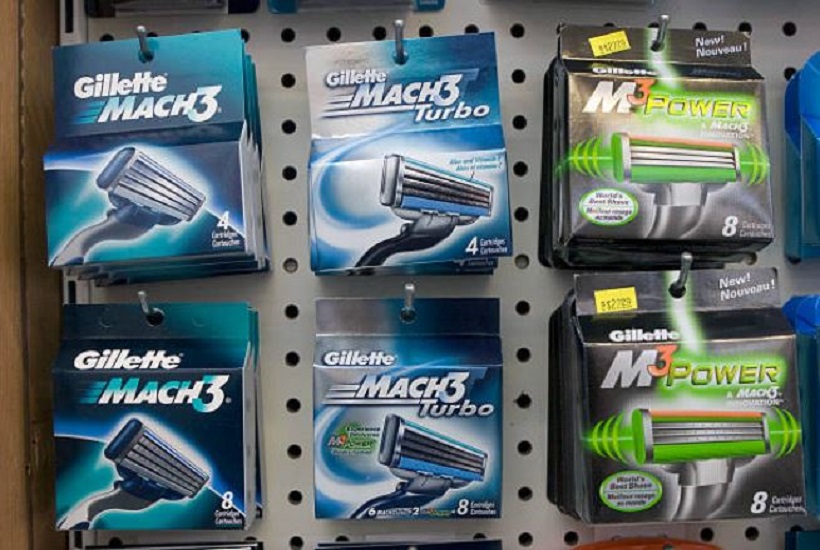If the purpose of advertising is to get as much publicity as possible, then Gillette hit on a winner last week. Within days of its launch, their latest advert was being mentioned and discussed in most of the media and immediately went viral. From the advertiser’s point of view – result!
When I heard about it I was prepared to hate it and get outraged, but in many ways, I thought it was excellent. There is a view of masculinity which is harmful and needs to be challenged. The advert does that well. It’s far too easy to dismiss it as ‘woke’ advertising, virtue signalling and toxic anti-masculinity.
The themes of misogyny, bullying and sexual misconduct are serious and should not be lightly dismissed. In fact, they should not be dismissed at all. Men are generally physically stronger than women, which is why the majority of physical abuse is done by men. Men in most societies have more social, political and economic power. That too is far too often used to abuse.
So good for Gillette – but (and you knew a ‘but’ had to be coming) there are things that are deeply concerning about this advert.
Firstly, this is an advert for a product which attempts to teach us morality. Earlier Gillette advertising spoke about ‘the best a man can get’; today’s speaks of ‘the best a man can be’ – as if a product or a multi-national company can inspire or make us be the best. The commercialisation of morality and its use to make money is profoundly disturbing. Are we really now taking our morality from the multi-nationals? Gillette is not being brave by their woke virtue signalling – they have been granted millions of pounds worth of free advertising because their name was on every news presenters lips. Controversy sells. So does virtue signalling.
Secondly, it’s hypocritical. Gillette is owned by Proctor and Gamble a major world corporation who have been attacked for their animal rights testing and their use of child labour. Their current advert also contrasts with an earlier Gillette advert of beautiful girls in tight blue leather outfits with Gillette prominently displayed across their prominent backsides! The fact that Gillette is now exploiting the #MeToo movement should not be a cause of celebration. Greed is more of a problem in society than ‘toxic masculinity’.
The advert is also racist. There are 43 bad examples of male behaviour, 42 are by white men and one black (where are the Asians and Arabs?). There are seven examples of good behaviour, five of whom are black and two are white. Imagine if it was the other way round! The ad would be banned for racist stereotyping. The unholy trinity of modern Western society is white, working class, and male.
Toxic masculinity. Perhaps worst of all is that the worthy aim of the advert (as opposed to the aim of selling more products) is likely to be undermined by the underlying message it conveys. The trend at the moment in Woke society is to claim that “toxic masculinity’ is really the major cause of all our woes. To defeat the Patriarchy we must emasculate men. The American Psychological Association has just issued guidelines saying that traditional masculinity is harmful to men and that masculine traits such as ‘risk-taking, competitiveness and stoicism’ should be dealt with. The trouble is that a society which emasculates its men will end up being replaced by a society that doesn’t. This does not mean that real men need to grow beards, paint themselves in woad and go out to fight. It does mean that we are to recognise and celebrate both masculinity and femininity.
In essence, then, I think the advert itself identifies a problem and suggests an outcome, but doesn’t tell us how we can get there. Using Gillette blades and shaving off our beards is not going to make us ‘the best a man can be’.
At the end of the advert they give us this slogan:
It’s by challenging ourselves to do more that we can get closer to our best.
That’s a nice motto and neat soundbite but it is bound to disappoint. Telling men to pull themselves up by their bootstraps and do their best will not work. Indeed it’s a recipe for further depression and toxic masculinity.
There has to be, and there is, a better way. The debate about gender, masculinity and identity is important. But perhaps instead of looking to multi-national corporations for our moral guidance, we could look to more tried and tested sources; those which are the foundation of Western civilisation. Maybe the Christian view of morality, men and masculinity would be worth returning to?
Got something to add? Join the discussion and comment below.
Got something to add? Join the discussion and comment below.
Get 10 issues for just $10
Subscribe to The Spectator Australia today for the next 10 magazine issues, plus full online access, for just $10.


























Comments
Don't miss out
Join the conversation with other Spectator Australia readers. Subscribe to leave a comment.
SUBSCRIBEAlready a subscriber? Log in